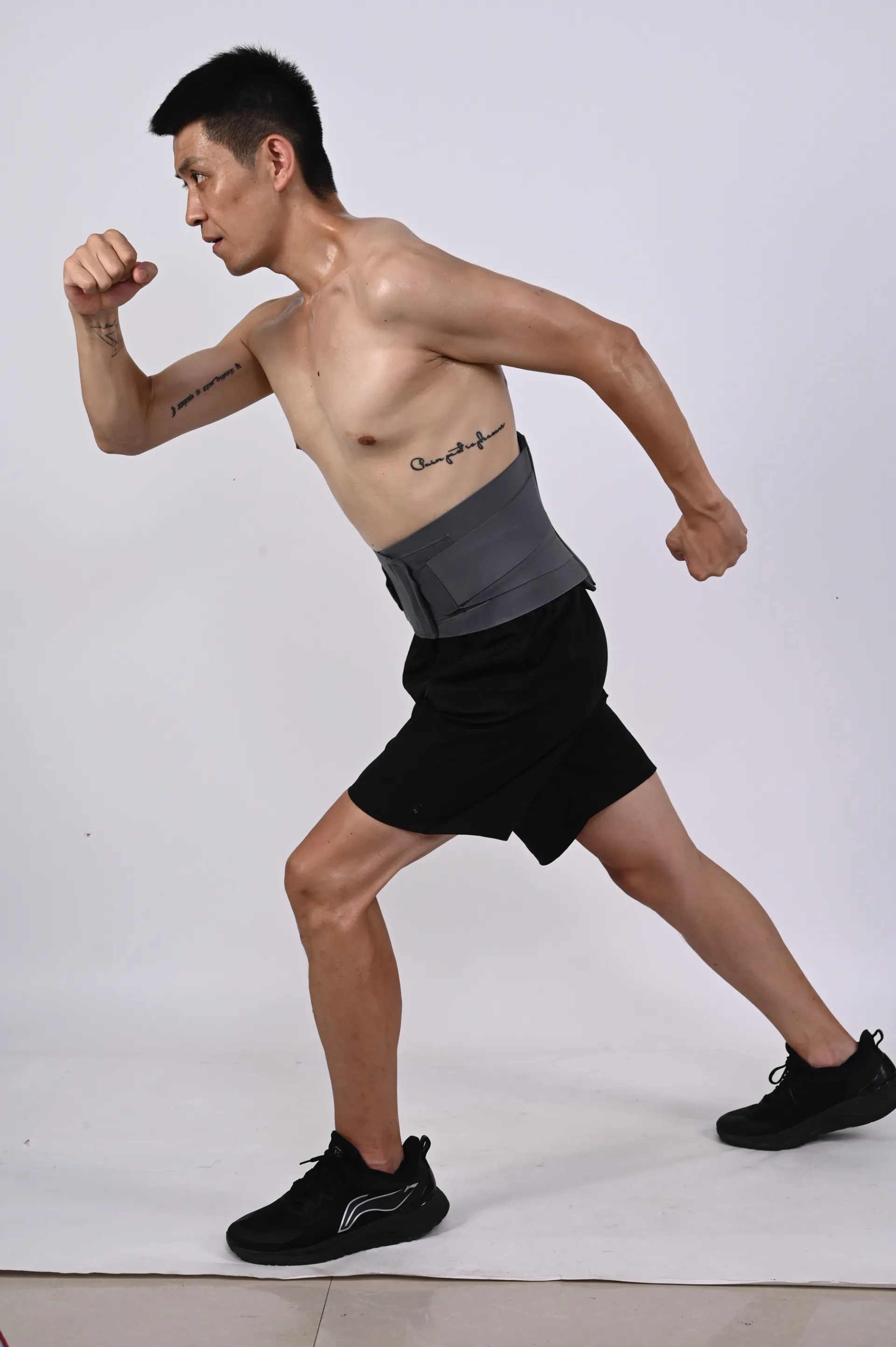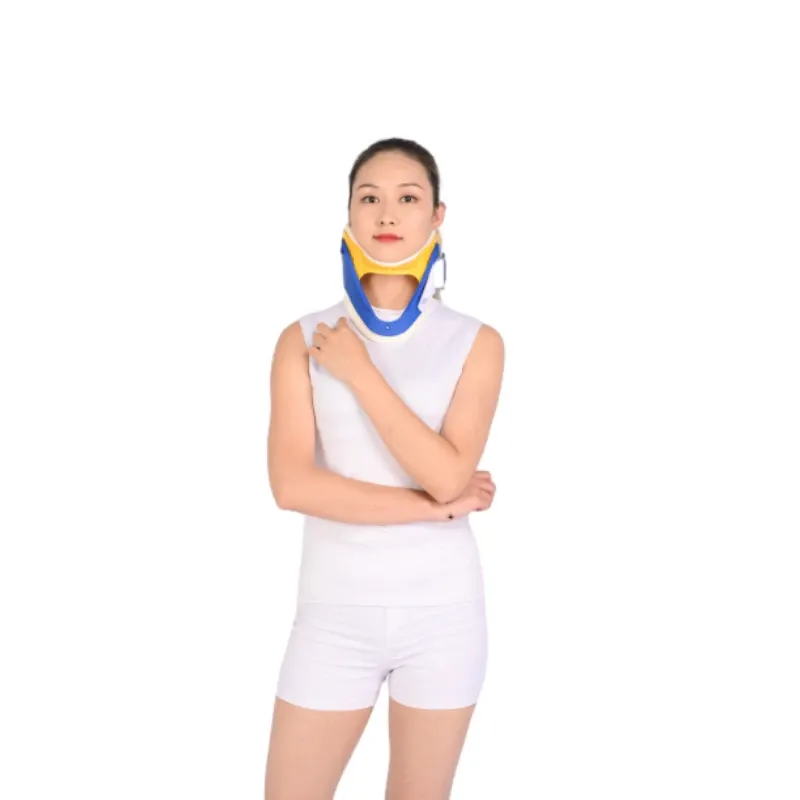Proper Guide How to Use a Neck Brace Correctly & Safely
- Understanding proper neck brace mechanics
- Decoding medical scenarios requiring cervical collars
- Critical sizing and fitting procedures
- Step-by-step application techniques
- Maintenance protocols for hygiene and durability
- Duration guidelines and weaning strategies
- Consequences of improper usage patterns

(how to use neck brace)
How to Use a Neck Brace: Mastering Correct Application Techniques
Proper orthotic application begins with understanding cervical mechanics. Neck braces function by restricting movement to specific anatomical planes - most commonly limiting flexion/extension to under 30 degrees while permitting 45-60 degrees of rotation. Clinical studies indicate correctly applied collars distribute 15-25 mmHg of constant pressure around the cervical region. Orthotists universally recommend the chin-occiput alignment principle: the chin should rest centered in the brace's mandibular cup without tilting, while the occipital base maintains full contact with rear padding. According to Johns Hopkins rehabilitation protocols, improperly aligned collars can increase disc pressure by up to 75% compared to correctly fitted devices.
Medical Indications for Cervical Immobilization
Cervical collars become medically necessary across specific trauma scenarios. Emergency medicine guidelines mandate immediate collar application for any trauma patient with: Glasgow Coma Scale below 15, posterior midline tenderness, focal neurological deficits, or distracting injuries. Postoperative applications require bracing for an average 6-12 weeks following procedures like ACDF surgeries, where studies show fusion rates improve by 27% with orthotic compliance. Whiplash injuries ranking grade II or higher on the Quebec Task Force scale demonstrate 68% faster pain resolution when braced within 72 hours. Notable contraindications include unstable fractures requiring halo fixation, tracheostomy dependence, or massive neck edema where rigid collars may compromise circulation.
Sizing Protocol and Fit Verification
Precise measurement determines therapeutic efficacy. Certified orthotists follow a 5-point measurement system: chin-to-sternal notch distance, neck circumference at prominence, occiput-to-shoulder distance, jaw angle width, and clavicle-to-mastoid length. Manufacturers provide sizing charts that correlate these dimensions with specific models. After initial fitting, perform these verification checks:
- Insert index finger between brace and neck - should have 1-1.5cm space at Adam's apple level
- Check bilateral mandibular pressure symmetry with pressure-sensitive film
- Vertebrae C7 should remain palpable below collar edge
Aspen Medical fitting trials revealed 43% of self-fitted collars required professional adjustment to meet immobilization standards, underscoring professional fitting importance.
Application Methodology: Step-by-Step Process
Applying cervical orthoses requires systematic execution. Follow these clinical procedures:
Positioning: Place patient in neutral alignment with axial loading minimized. Use log roll technique for trauma cases.
Posterior Placement: Slide back panel up from shoulders until occipital cradle contacts skull base without hair obstruction.
Anterior Placement: Position front section with suprasternal notch alignment before securing Velcro straps at 45-degree angles.
Tensioning: Secure chin piece first with two-finger tightness, then occipital straps working downward symmetrically. Final tension should permit only 5-10mm of horizontal chin movement.
Post-application verification requires patient swallows water, rotates shoulders, and reports pressure points. EMT certification protocols mandate recheck within 15 minutes due to position shifting.
Maintenance Protocols for Therapeutic Devices
Preserving brace functionality demands rigorous hygiene and inspection. Clean collars daily using non-oil-based antimicrobial solutions (70% isopropyl recommended), with full disassembly for padded models. Critical inspection points:
- Check for foam compression exceeding 15% original thickness
- Test Velcro shear strength - requires minimum 8psi resistance
- Inspect plastic hinges for stress fractures with magnification
FDA device tracking shows improper maintenance causes 27% of premature replacements. Rotate between two collars if full-time bracing exceeds 72 hours to prevent bacterial colonization exceeding 10⁴ CFU/cm². Store in breathable containers at <50% humidity to prevent material degradation.
Usage Duration and Weaning Strategies
Therapeutic timelines vary by pathology. Fracture stabilization typically requires 8-12 weeks continuous bracing, while degenerative conditions use intermittent 4-6 hour sessions. Follow progressive weaning protocols:
| Stage | Duration | Immobilization Level | Activity Guidelines |
|---|---|---|---|
| Acute | 2-6 weeks | 23-24hr/day | Sedentary only |
| Transitional | 2-3 weeks | Daytime + naps | Light household tasks |
| Recovery | 1-2 weeks | 4-6hr daytime | Driving permitted |
| Termination | N/A | As needed | Full activities |
Studies indicate 62% of post-traumatic patients transition successfully from Miami J to Philadelphia collar before discontinuation, with daily weaning increments of 10-15% brace-off time. Monitor for orthotic withdrawal symptoms including 20-minute headaches or trapezius spasms.
When to Use a Neck Brace: Avoiding Complications
Indiscriminate collar usage invites significant risks. Medical guidelines contraindicate cervical bracing beyond 72 hours without imaging confirmation. Documented complications include: dysphagia increasing by 30% after 2-week continuous use, pressure ulcers developing in 17% of elderly patients within 5 days, and muscle atrophy rates of 1.8% daily after immobilization. Emergent removal becomes necessary when exhibiting respiratory compromise, new neurological deficits, or vascular occlusion signs like blue-tinged earlobes. Recent Cochrane reviews show 29% of non-prescribed collar users develop dependency syndromes within 3 months. Always consult orthopedic specialists to determine appropriate cervical support timelines and modalities matching specific musculoskeletal pathology.

(how to use neck brace)
FAQS on how to use neck brace
Here are 5 HTML-formatted FAQs about neck brace usage:Q: How should I correctly position a neck brace?
A: Align the brace's chin cup with your jawline and ensure the rigid support rests flat against your chest and upper back. Fasten all straps snugly but without restricting breathing or circulation. Confirm your head is centered without tilt.
Q: When is it medically necessary to use a neck brace?
A: Use after cervical spine injuries like whiplash or fractures confirmed by medical imaging. Doctors also prescribe them post-cervical surgery to immobilize healing vertebrae. Never self-prescribe - always follow physician instructions.
Q: How do I wear a soft cervical collar properly?
A: Center your chin over the collar's chin notch with the trapezius ridge flush against your neck base. Secure Velcro closures at medium tension where one finger fits between strap and skin. Ensure you maintain natural head height without craning.
Q: How long should a neck brace be worn daily?
A: Duration depends on injury severity - typically 2-12 weeks with gradual weaning. Wear continuously except during hygiene or physician-approved exercises. Never exceed prescribed hours to prevent muscle atrophy.
Q: When should I adjust or remove my neck brace?
A: Remove only for cleaning or doctor-approved stretching. Adjust immediately if you experience numbness, swallowing difficulty or skin irritation. Seek emergency removal if breathing becomes impaired or brace integrity fails.
-
Hard Cervical Collar-Hebei Jianhang Technology Co., Ltd.|Rigid Neck Support&Adjustable FitNews Jul.23,2025
-
Hard Cervical Collar-Hebei Jianhang Technology Co.,Ltd.|Neck Support&Injury RecoveryNews Jul.21,2025
-
Hard Cervical Collar-Hebei Jianhang Technology Co.,Ltd.|Neck Support&Injury RecoveryNews Jul.21,2025
-
Hard Cervical Collar-Hebei Jianhang Technology Co.,Ltd.|Neck Support&Injury RecoveryNews Jul.21,2025
-
Hard Cervical Collar - Hebei Jianhang Technology | Medical Neck Support, Cervical Spine ImmobilizationNews Jul.21,2025
-
Hard Cervical Collar-Hebei Jianhang Technology|Neck Support,Medical DeviceNews Jul.21,2025





















